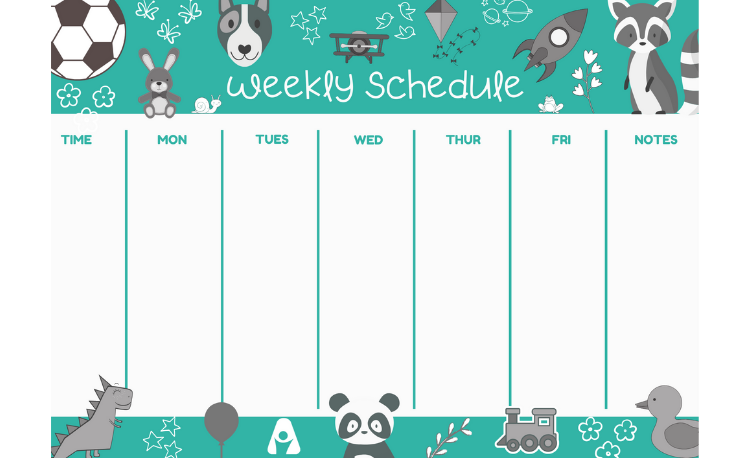Coronavirus and Autism: What You Need to Know
Updated on January 22, 2024
The world seems to be in mass hysteria and things like quarantines, events being canceled, and schools being closed can trigger your loved one with autism. As you know, people with autism often find comfort in routine and knowing exactly what’s going to happen and when. In times like these where there are no definite answers to the questions they are likely to ask, it’s a good idea to have a plan.
Give them as much information as you have and show them notifications from the school or event that is being canceled. Reassure them that this is temporary and that you will let them know when you have updated information.
You know your autistic child or loved one better than anyone else, so take this information and these suggestions and modify them based on what you already know works best to educate and calm your child. If necessary, contact their therapist for support.
Educate Yourself with the Facts
Mass hysteria can lead to a lot of false information being spread faster than the virus itself. Make sure to check sources and get reliable information before starting a discussion with your child. Here are some of the basics from the CDC and WHO:
- Symptoms: Cough, Fever, and Shortness of Breath are the main symptoms. Symptoms appear 1-14 days after being exposed (most commonly 5 days).
- Emergency Symptoms: Pain or pressure in the chest, difficulty breathing, new confusion, and bluish lips or face.
- People at Risk: Adults over 65 and anyone with diabetes, cancer, or lung or heart disease.
- How it’s Spread: Person-to-person (within 3-6 feet) through coughing and sneezing, contact with contaminated surfaces (it can last a few hours up to several days depending on the environment, but chances of contacting it this way are extremely low). Many people only experience mild symptoms like a dry cough that can spread the disease.
- Prevention: Wash hands for 20 seconds on a regular basis, avoid touching your eyes, nose and mouth, stay home if sick, and cover your sneeze or cough with a tissue or elbow
- What to Do if You Get Sick: Stay home and call your doctor – There is no vaccine or treatment for Coronavirus and most cases are mild and should be cared for at home (like the cold or flu)

Other things to know about Coronavirus from the CDC:
(Keep in mind information is constantly changing so it’s a good idea to check their website for the latest news)
- There is still a very low chance of getting infected unless you are in an area where it is rapidly spreading. Only a very limited number of states and cities within those states including Washington, California, New York, and Massachusetts are experiencing this. Keep up to date here.
- It is highly unlikely to be infected by someone with no symptoms, although there has been a few cases.
- It is highly unlikely to be infected by a package.
- Only people who are sick should wear masks, they do not effectively prevent you from getting sick.
- Cold, warm, dry or humid weather does not kill Coronavirus.

Talk About Coronavirus with Your Autistic Child
Honesty is usually the best medicine, just make sure to use language and examples that will put them at ease and help alleviate their anxiety. Children with autism respond well to logic and facts and discussing world events is no exception. Have a conversation about the disease, how it spreads, and how the changes in their routine can help protect people. Remember, despite precautions being taken to contain the virus, the chances of actually getting Coronavirus are still very low in most areas.
A good way to start is by asking them what they already know, listening to their concerns, and answering their questions. You may be surprised at how much they’ve already learned and processed. This way you can address their specific concerns and anxiety head-on and be as supportive as possible.
Don’t forget to go over the symptoms and point out how some of the symptoms are similar for colds and the flu. Remind them of a time they got sick and then got better and reassure them that this is no different, but that it’s important for them to let you know right away if they don’t feel well.

Fun Activities to Teach Good Hygiene to Children
Make learning about good hygiene practices fun with these activities:
- 20-Second Sing-A-Long: Ask your child to pick a few of their favorite songs and then use a timer and the lyrics to figure out together what verses add up to 20 seconds that they can sing while washing their hands.
- Glitter Hands: Put glitter on your child’s hands and have them run their hands briefly under running water so they can see how much glitter stays on their hands. Then have them wash their hands with soap and water for 20 seconds (using one of the songs they chose) so they can see all the glitter is gone.
- Touchless Greetings: Ask your child to come up with creative and funny ways to say hello and show love without shaking hands or hugging. You can show them the Vulcan greeting, a curtsey, and bow to get started.
- Cough & Sneeze Elbows: Have them choose one elbow for coughs and the other for sneezes and then practice with fake coughs and sneezes.

Dealing with Changes in Routine and Having Events Canceled
While having school canceled is something typical kids dream about, it can cause a child with autism a lot of stress. If your school hasn’t canceled classes yet, it might be a good idea to start preparing your child for the possibility. Giving your child with autism time to process and accept the change is important. This is also true of events that may be canceled, especially if it is something that they’ve been looking forward to for a long time.
If your school has already canceled classes, make sure to talk openly about it and let your child know they can discuss any anxiety or sadness they are experiencing with you. Here are some things you can do to ease the transition:
- Schedule: Make a colorful schedule for each day to post on the fridge so they know exactly what to expect.
- Activities: Make sure you have everything they need for the activities they love. If they love art, stock up on supplies or if they are obsessed with horses buy books, movies, toys, and games that will keep them distracted.
- Long-Term Projects: Plant seeds and monitor their growth, grow crystals, create a vision board, or start a big puzzle.
- Learning: Being stuck at home is a great opportunity to teach them new skills and work on exercises their therapist has given you.
- Exercise: Make sure they get enough physical activity. Research has shown that yoga is a great way to manage stress and behavioural issues in children with autism.
- Adopt a Dog: With extended time at home, it could be a great opportunity to welcome a new family member. Learn all about the best dog breeds for children with autism.
Safety At Home
With schools closing and routines being changed, children with autism who are prone to wandering or have wandered in the past could have an increase in incidents caused by anxiety or boredom. It’s important to be on high alert and take as many precautions as necessary to ensure your child’s safety.
This is exactly what the AngelSense GPS safety device was made for. If you have one, make sure it is charged and that your child is wearing it. Also, make sure your phone is charged, the sound is on, and that you check it regularly so you don’t miss any elopement alerts. Anxiety and boredom can trigger wandering, so don’t take any chances.
Here are a few tips to keep your child with autism safe during a home quarantine:
- As mentioned above, make sure they are wearing their AngelSense GPS device so you can quickly find them in case of an elopement.
- Review our Emergency Preparation Checklist and practice using the features.
- Make sure locks on windows and doors are secured and working properly.
- Make sure gates and fences are secure.
- Go over and reinforce safety precautions and rules.
- Create social stories to reinforce skill-building – Here are some templates to customize.

Here are some ways to teach your child with ASD about safety depending on their abilities:
- Explain why the rules and boundaries are important, that it keeps them safe, that it scares you when they cross the boundaries, etc.
- Define boundaries and mark them with colored tape or signs
- Clearly explain what the child should do when they reach a boundary, for example, stop, turn around, and ask for permission to cross the boundary
- Teach non-verbal children to knock on the door if they want to go outside
- Role-play and practice reaching a boundary and following the rules
- Be consistent and keep rules simple
- If you have other children, have them practice with you and follow the same rules
- Spontaneously have them repeat the rules to you
- Give rewards for successful use of the rules

Using AngelSense at Home
AngelSense is an extremely effective GPS tracker that will notify you if your child elopes from home and help you find them before it turns into an emergency situation. However, it also has several other features that can be used, and that you can practice using, while you’re at home. Here are some ways to use the device during a quarantine or if school is canceled:
- GPS Tracking: Ensure maximum safety from wandering at home and during outings to the park, playground, play dates, and sitters.
- Alarm: Play hide and seek and use the alarm to find your child. This will help them get used to the noise in case you have to use it in an emergency and helps you get used to using the feature. You can also use it to teach your child to return home when they hear it.
- Step Counter: Make sure your child is getting enough physical activity by monitoring their daily steps.
- 2-Way Voice: Go in separate rooms and practice using the voice features.
- SOS / Call Request: Help your child learn to press the SOS button to let you know they need you. Have them use it whenever they need or want you throughout the day.
- School Dashboard: Don’t forget to update your school schedule to temporarily remove days that your child will be at home. You can also remove school guardians and add a babysitter to give them access during set times.
- Belt: Some children are more likely to remove clothing while at home, the AngelSense belt is a great option to ensure the device stays put.
- Customer Support: As always, our Customer Care moms work from home and will be available to help answer any of your questions.
We wish you an easy transition during these unique times. Stay safe and healthy!
Get peace of mind from AngelSense, the groundbreaking AI-based assistive technology designed to enhance safety and peace of mind for individuals with special needs and their families. Our solution ensures you stay connected with your loved ones, empowering a higher level of independence while maintaining safety. Learn more about how AngelSense can make a difference for your family.



Here is an article written by an autistic adult.